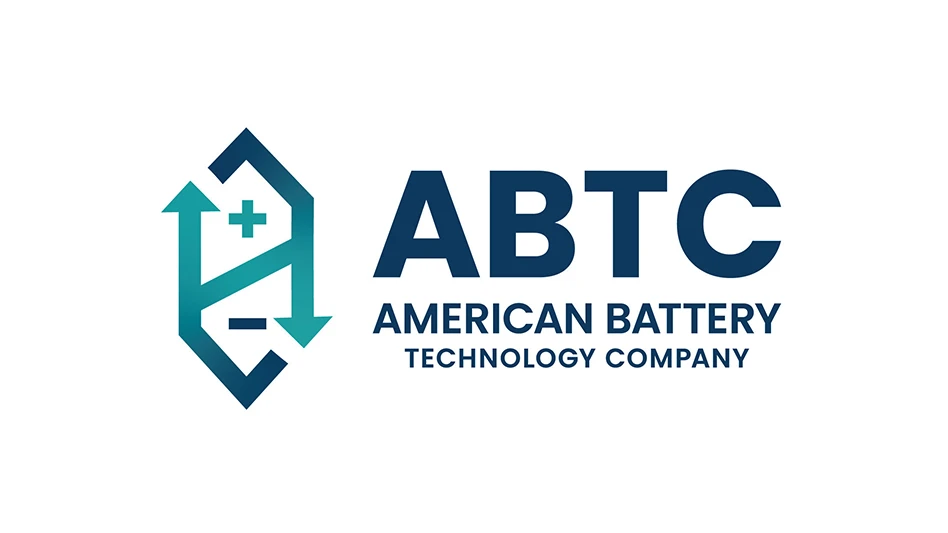"Under normal, historical circumstances, paper prices generally don’t change during a given month, or they may change at the beginning of every month in some type of reasonable fashion," explains Gold, vice president and general manager of North Shore Recycled Fibers, Salem, Mass. "Today, they change daily."
Gold doesn’t dismiss the profit potential of operating in a market as explosive as paper stock recycling is currently, but doing business in a superheated market such as this does have its down side.
"To administer a wastepaper business today is a nightmare in hell," Gold says simply. "Your accounting is up in arms because they’re not used to the rapid, dramatic changes. The industry in general isn’t used to them, either. Our commodity is like a stock-driven commodity these days, and I don’t think the industry is ready for that."
However, given North Shore Recycled Fibers’ track record of nearly 80 years of success, Gold -- along with Heffernan, vice president of sales and operations -- maintains perspective and remains undaunted.
North Shore Recycled Fibers was founded in Salem by Gold’s grandfather, Benjamin Gold, in 1916. In 1973, Herbert Gold -- Benjamin’s son and John’s father -- sold the company to the Newark Group.
Around that same time, another company in the area known as Malden Waste -- run by Heffernan’s grandfather, Frank Mennino -- had gained a foothold in the Northeast market. Mennino, who had founded Malden Waste in the 1930’s, sold his company to the Newark Group in 1974. Malden and North Shore together became the foundation for what is today the Recycled Fibers Division of the Newark Group.
In addition to the Recycled Fibers Division, the Newark Group today includes a Mill Division, a Converting Division and a Book Covers Division.
"The Newark Group is a 100-percent integrated corporation," Gold explains. "They own 12 paper mills coast to coast which produce box board, folded carton and corrugated medium. Besides those 12 paper mills, we have 19 paper recycling facilities coast to coast. Then we have a book covers operation that makes game boards, book covers and cover boards. We have a tube and core division. We also have a pizza box factory."
North Shore Recycled Fibers currently operates four satellite plants in Massachusetts, located in Salem, Malden, East Weymouth and Webster. Negotiations are under way to build two more, says Gold.
STRUCTURE
Gold describes North Shore Recycled Fibers as a multi-layered, multi-faceted operation.
"We have our external brokerage department, which sells to the outside world," he says. "We have our internal purchasing department that does the purchasing for our Newark Group mills in the Northeast. We have a procurement staff that goes out into the market place procuring waste paper, going to office buildings, printers, retailers, supermarkets, etc."
In addition to the brokerage operations, he says, are the plant operations, which are "just as important to us as our brokerage, and vice versa. Running our plants today is a lot different from what it was even five years ago. Years ago, we were more concerned about how much we could produce and getting it off the floor."
The Salem facility, which includes a staff of 46, is North Shore’s headquarters in the Northeast, says Heffernan. Other locations in the Northeast include staffs of anywhere from four to 12 workers. "Most of the administration is handled out of the Salem office," says Heffernan. "That’s why you see the heavy staffing."
The packing plant at Salem handles roughly 2,000 tons a month through the baling operation, Heffernan explains. "Then we break out into the satellite plants. Typically our structure is just that. They are set up as packing plants where tonnage is brought in, they process, then we take daily control and sell that tonnage out of here, out of our North Shore Salem operation, just to keep a steady pulse on the industry, just so we don’t start competing with ourselves. We handle all of that through the Salem location."
Each division within the Newark group, including the Recycled Fibers Division, typically includes its own brokerage department, says Heffernan.
"The first responsibility of the division is to procure and purchase the tonnage for those Newark Group paper mills that are located within that division," says Heffernan. "In other words, up here in New England, we have our four wastepaper plants, but the Newark Group also owns three paper mills. The purchasing of all the raw materials for those three paper mills is done by North Shore Recycled Fibers."
North Shore Recycled Fibers procures its tonnage primarily from the New England area, says Heffernan. "We do purchase some tons interdivisionally, and bring some tons in from outside the New England area when the need be. Our customers are cities and towns and municipalities, retail stores, supermarkets, anyone that generates waste papers."
Gold adds that North Shore also purchases some tonnage from the waste industry.
"Roughly speaking, our Newark Group mills consume over a million tons a year," says Gold. "Our Recycled Fibers Division supplies the Newark Group with more than a million tons a year of raw material."
To the paper industry in general, the Recycled Fibers Division sells roughly another 1.5 million to close to 2 million tons a year. "In total, we’re at about 2.7 million tons, and we estimate to be in the 3 million range by the end of this year," says Gold, noting that only about 40 percent of material purchased is targeted to the Newark Group’s mills.
Certainly, feeding North Shore’s own mills is the primary concern, Heffernan explains. "Then our overabundance of tonnage above what our mills can consume, we sell regionally to local mills, then internationally to markets overseas, Canada, Mexico. Basically we sell anywhere."
MARKET DEVELOPMENT
One of Gold’s pet projects in the past few years has been market development.
"Over the years, especially the last five years, I’ve spent a lot of time developing and working with new startup programs and new consumer mills in an effort to find new markets," he says. "I’ve been working either with new companies, or with companies that are making the changeover from using virgin to using recycled material."
But Gold’s agenda is not entirely selfless. Projects like these are just as much for the benefit of his own company as they are for the consumer mills with which Gold works.
"It’s a matter of growth and profitability," he says simply. "Every day, our main objective is to go and recover more fiber from the waste stream. On the other side of that, in order for us to be successful, we have to have markets for that material...A lot of time and effort has been spent in developing new homes for material, new places to sell product."
Perhaps the most widely publicized project of this nature is North Shore’s supplier agreement with Massachusetts Recycling Associates Limited Partnership, a new $220 million deinking facility in Fitchburg, Mass., scheduled to start up sometime late this year or early next.
"The parent company to the mill is Intercontinental Recycling Corp., which purchased James River’s property and facility in Fitchburg, Mass," Gold explains. "We went through about two years of negotiations. Newark has the contract for 20 years to supply the waste paper, which will be roughly 650 tons per day."
Although the startup is several months away, North Shore Recycled Fiber is planning to start building inventory this spring, says Heffernan.
The Fitchburg plant is just one of many deinking pulp mills coming on line in the next 12 to 18 months, Gold notes. "Our Recycled Fibers Division, as a corporation, is also supplying many of the other projects throughout the United States...We’re contractually supplying many of the integrated deinking market pulp mills in the United States."
Gold says he’s very interested in getting involved with any startup projects coming online in the next couple years. "In order for recycling to be successful, we need to be out there procuring tonnage for these paper mills."
COMPLIANCE
While rigorous environmental and safety compliance requirements can often pose hurdles to the daily demands of running a recycling business, Gold recognizes the value of a safe, clean working environment.
"Every month at each plant, we run through roughly a dozen to 20 safety or environmental scenarios, and each month one of these issues is discussed at a safety and environmental compliance meeting," says Gold. "In addition, our plant managers all meet once a month together with Bob and his group and our accounting people to go over financials as well as any compliance and safety issues."
Overall, Gold says the North Shore Recycled Fibers workforce -- both salary and hourly -- is well-versed in OSHA regulatory requirements. "We’ve found that by safety and better housekeeping, we’re a more profitable, better run, better organized company. And we’re proud of our efforts, because it’s really helped our business."
However, he can’t deny that taking time out for safety and environmental compliance issues can slow business down.
"It’s increased the workload incredibly," says Heffernan, "and absolutely increased the staffing."
In the end, though, Gold prefers to ride the compliance wave rather than fight it. "Actually, we probably overcomply in a lot of ways," he says. "I bet we’re one of the very few wastepaper companies to go through the whole stormwater runoff group permitting procedure with the Institute of Scrap Recycling Industries. I don’t know of many wastepaper companies who have done that...If it’s an issue, we’re going to comply with it."
CHAOS
Although he refers to the market as chaotic, Gold sees a method to the madness, nonetheless.
"I think we came off of four of the worst years the industry ever saw," he says, "not just in this country but worldwide. Over the last two years, things were getting better, and then last year, things really got great. In this country, business is tremendous right now.
"But the industry did something pretty interesting. They saw the improvements in the market, they made expansions, many more kraft liner mills were built, many more medium mills were built, all these deinking market pulp mills were used, President Clinton issued an executive order that is allowing us to sell recycled paper to the printing and writing industry."
All of these circumstances have resulted in a market pushed to its limits of sustainability, he says. "The infrastructure on many of these grades, especially the printing and writing grades, is not in place yet. On that end, you’re seeing the grades go from a fair price to something incredible, and right now there’s not enough tons to supply the industry for the printing and writing grade."
Although Heffernan doesn’t believe in such a thing as too much expansion in the paper market, he does believe in too much expansion all at once. "Until the system is developed to remove the waste paper from the offices and homes or wherever it is," he adds, "we’re in a tight supply market."
OUTLOOK
Gold sees sustained strength in the paper stock market for at least another year. However, paper recyclers and brokers ought to be less concerned about how long the current conditions will last and more concerned about how they will change.
"What’s going to stop this thing? That’s what you really want to know," he says. "Maybe a slowdown in economic growth. But as long as demand is there and business is strong, this is going to remain one tremendously hot market. I almost think that, in the printing and writing paper market, it could be artificial. Even if business gets bad, and those mills are still running, they’re still going to pay a tremendous price, because there’s not enough to supply the industry."
Heffernan is almost inclined to say that the market is actually too hot, but like any good paper stock dealer, he isn’t likely to admit it.
"When you’re a wastepaper dealer or a packing plant, your competition increases to the point where it becomes a very cut-throat business," he says. "So in that respect, maybe it is too hot. But certainly it’s something that we’ve anticipated -- maybe not to this level -- and something that we’ve looked forward to. We came off four tough years in this industry. Now we’re in our heyday."
But the heyday can be a mixed blessing, Gold cautions. "From running a packing plant operation, our plants are showing good profitability today," he says. "Our brokerage business is not increasing in profitability at all. Actually, it’s probably decreasing, because margins are getting squeezed. And we have tremendous receivables today, much higher than what we’d ever dreamed they’d be. And so there’s all these little things that add up to make our lives much more complicated than they ever were before in this business."
DISTINCTION
Both Gold and Heffernan have taken an active role over the years in helping to develop industry-wide standards, specifications and definitions for mixed office paper. They take issue with what they consider a "ridiculous distinction" between pre-consumer and post-consumer definitions.
"Fourteen percent of the papers out there are from the printing and writing industry that we need in our pack to be successful in supplying these mills," says Gold. "I understand why people wanted the distinction. This goes back to before President Clinton’s executive order. I think from the environmental side, people were concerned that there were not enough markets if we were going to recover from office buildings.
"Well, the industry stepped up to the plate, invested billions of dollars into mills, and now, for us to be successful, that material that includes the cuts and the trim from printers has to be used, or we’re not going to be able to supply these mills with enough tonnage. We need that 14 percent. There’s no way any of us could stand up even in a court of law and show you what the difference is between something from the office and something from a printer. I know I couldn’t in most cases."
Gold considers this undue concern over the differences between pre-consumer and post-consumer content to be the number one obstacle in the path of the paper recycling industry today. Such a distinction could hamper the entire industry by preventing them from having access to perfectly good furnish, he suggests. "As far as we’re concerned, if it didn’t go to waste paper from a printer, it would go to a landfill."
FUTURE
With competition so steep for most grades, North Shore Recycled Fiber depends on more than just attractive pricing to stay ahead in a hot market. Customer service plays just as important a role as prices.
"We pay our bills on time," says Gold. "We go in and educate. If an account needs our expertise to help them, we’re there. If they pick up the phone and say they have a problem, then one of us is out there the next day. I think a lot of people in the industry will tell you that we do it damn well.
"You can have the greatest prices, but if your trucks don’t show up, you have a problem. Or if you didn’t educate the account right, you have a problem."
Overall, despite market volatility, the Newark Group and North Shore Recycled Fibers are "doing just fine," says Gold. "We’ve added mills over the last few years. In the last five years we’ve added many recycled fiber plants. We want to continue to supply the industry with good quality material. The future will be to develop more tons in the marketplace. I definitely think that one of the growth areas will be to get way more involved with the procurement of tons in collection, and keep on forging ahead."
Both executives are optimistic, but also "pretty realistic that one day this market will change again," says Gold. "But the Newark Group has been in business for many years, and North Shore has been in business since the early part of the century. We’ve weathered every storm that’s come our way. I don’t think there’s anything that we really can’t handle."
Get curated news on YOUR industry.
Enter your email to receive our newsletters.

Explore the August 2001 Issue
Check out more from this issue and find your next story to read.
Latest from Recycling Today
- Circular by Shapiro releases "5 for Five" sustainability series
- Graphic Packaging set to close Ohio CRB facility
- Ameripen voices support for Maryland EPR bill
- Matalco to close Canton, Ohio, plant
- Maryland county expands curbside recycling to include electronics
- California EPS ban will be enforced
- YKK AP America introduces BetterBillet
- Fresh Perspective: Cameron Keefe






